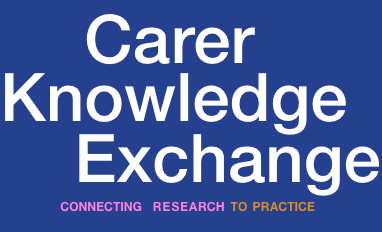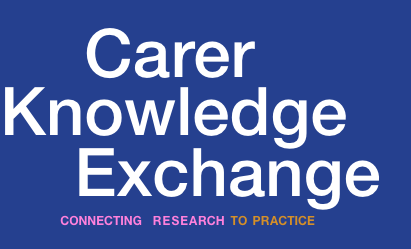Research Library
The Carer Knowledge Exchange Research Library is a collection of recent Australian publications and other resources that contain reliable research about family and friend carers. It is constantly being added to, and you can suggest research to be included here.
There are two main ways to use the Research Library. The first is to search using the fields below. The second is to browse by category lower down the page.
For help using the Research Library, click here.
Please also see our Frequently asked questions page.
The publications in this research library may contain references to sensitive issues and cause distress. If you or someone you are with is in immediate danger, please call 000. If you feel upset or are in distress, you can contact Lifeline, 24 hours a day, 7 days a week by phoning 13 11 14 or texting 0477 13 11 14. For other information on support for carers please visit our support for carers page.
-
Add your research
Is something important missing from the Research Library? Share your research or suggest research by another author using our submission form. For more information about how to create an account click here and for more information about how to upload a publication to the research library click here.
My Research
Your Results
Filter my Results
Use the ‘filter my results’ function to further refine your search results. If you would like to start a new search, please use the ‘search for a resource’ function above
Your search has returned 27 results
-
16.10.2023
2022 National Carer Survey
Carers NSW
Led by Carers NSW, the 2022 National Carer Survey has expanded the evidence base regarding carers' experiences and support needs. The survey asked carers across Australia about their caring roles, their experiences with services for themselves and the people they care for, their experiences with paid work, and their health and wellbeing.
-
11.9.2024
Empowering carers when systems are complex
Carers NSW, Carer Knowledge Exchange
The CKE Interactive Webinar 8 focused on empowering carers in complex systems and improving service access. This paper summarises the themes discussed at the webinar by panellists and by participants in breakout rooms.



